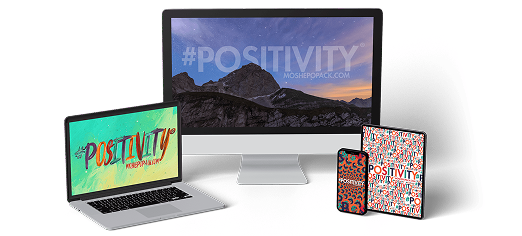The Common Denominator podcast celebrates its 200th episode! Join us as we look back at the beginning of the show, chat about how it’s evolved and where it’s headed, and reminisce about great guests, funny moments, and impactful life-lessons learned along the way.”
Why Moshe decided to launch a podcast:
“It goes back to the story of Yaffa (my wife) and I. We came down to Miami 18 years ago. I had a job but lost my job. And at the time we had three kids – now we have 11 children. And it was a really, really tough time, back in 2009. And I kind of made a deal with the universe that if I’m able to get out of this and I’m able to provide for my family and do the right thing, then I would in turn give back. And, this is a way to give back.”
His role as a conduit for the audience:
“That’s always what I think about as a host. If I’m learning even one thing, one key takeaway, or two or three, then the (audience) is learning too.”
Something he’s learned as the host of the show:
“For me, my key takeaway after 200 episodes is everybody – again to that ‘common denominator’ – has a journey. Everybody has a story.”
Why the show has been so successful and sustainable:
“It’s only going to be sustainable if it goes beyond the ebbs and flows of life. We’ve gotten to the 200th episode because it’s important (to the audience). And the feedback has been tremendous. But the idea of having that ‘why’, that reason why you’re doing something that goes above the day-to-day, that idea is powerful.”
Overcoming some early stumbles as a host:
“In the beginning it was super hard. I didn’t go to school for any of this so I’m thinking to myself, ‘How do I break this down?’ But, over time, you’re learning from the guests, you’re reading, you’re studying, you’re watching and listening to more and more podcasts. It’s like anything else – you’re fine tuning a muscle.”
Why guests are comfortable opening up to Moshe:
“Well, the number one thing is, if you don’t want to be judged, you can’t judge other people. … I’ve seen a lot in my life, and I just want to give the benefit of the doubt to people. Because I actually believe that when we are born … we are perfect. All eight billion of us. But what happens is that life happens. And people have to make choices. And everybody wants to judge, to knock other people, to make themselves feel better, but – in essence – we’re all just trying. Nobody really knows anything.”
What asking guests about gratitude has taught him:
“If you can live in gratitude and realize that all of us will have failures at some point, but those failures are learning experiences and then be able to internalize that … and you see that the worst things that ever happen to you end up being the best things.”

